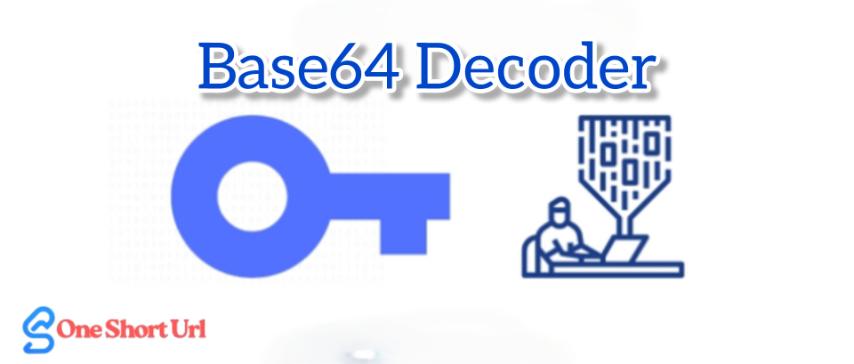
Base64 Decoder: A Complete Guide
Created on 29 September, 2025 • Converter Tools • 44 views • 2 minutes read
Base64 decoder is an essential tool for anyone handling encoded data.
Introduction to Base64 Decoder
Base64 decoder is a powerful tool that helps convert encoded Base64 strings back into their original format. Many digital platforms use Base64 encoding to ensure that binary data, such as images, files, or documents, can be safely transmitted over systems that only support text. However, when you need to access the original information, a Base64 decoder becomes essential. By decoding, users can retrieve the original binary data from the encoded text without losing accuracy or quality.
What is Base64 Encoding and Decoding?
Base64 encoding is a method of representing binary data using a limited set of characters that are safe for text-based systems. It uses a combination of 64 characters, including uppercase letters, lowercase letters, numbers, plus sign (+), and forward slash (/). Padding with equal signs (=) is often added to make the encoded data length valid.
Decoding, on the other hand, is the reverse process. A Base64 decoder takes the encoded text and translates it back into its original form, whether it is an image, document, or any other file type. This ensures that the data becomes usable again in its intended application.
Importance of Base64 Decoder in Daily Use
Base64 decoders play a crucial role in web development, security, and data transmission. Web developers frequently use Base64 encoding to embed images or files directly into HTML or CSS. When retrieving or debugging such data, a Base64 decoder helps restore the file to its original version.
Another important use is in email systems. Emails often rely on Base64 encoding for attachments to ensure compatibility across different servers. Without decoding, attachments would remain unreadable. Similarly, cybersecurity experts use decoders to analyze encoded malicious payloads, making Base64 decoding a vital step in digital investigations.
Benefits of Using a Base64 Decoder
Easy Conversion
A Base64 decoder provides quick and accurate conversions of encoded text into its original format.
Compatibility
It ensures that data encoded for safe transmission can be fully restored across different devices and platforms.
Data Recovery
If files are accidentally encoded or hidden in Base64, decoding allows you to recover them without corruption.
Developer Friendly
Web developers and programmers can easily debug and verify embedded files by decoding Base64 strings.
Common Applications of Base64 Decoder
Web Development
Developers embed images or fonts using Base64 encoding within websites. Decoders are used when these assets need to be extracted.
File Handling
Users may encounter Base64 when downloading attachments or documents. Decoding ensures that the files are usable again.
API Data Transfer
APIs often return data in Base64 format. A decoder helps transform it back into readable or usable form.
Cybersecurity
Security researchers decode suspicious Base64 strings to inspect hidden scripts or data.
Conclusion: Why You Should Use a Base64 Decoder
Base64 decoder is an essential tool for anyone handling encoded data. From developers working on websites, to individuals receiving email attachments, to security professionals analyzing threats, decoding Base64 is an unavoidable task. It restores encoded text into original formats while ensuring accuracy and compatibility. With the growing use of Base64 across the internet, having access to a reliable Base64 decoder has become more important than ever.